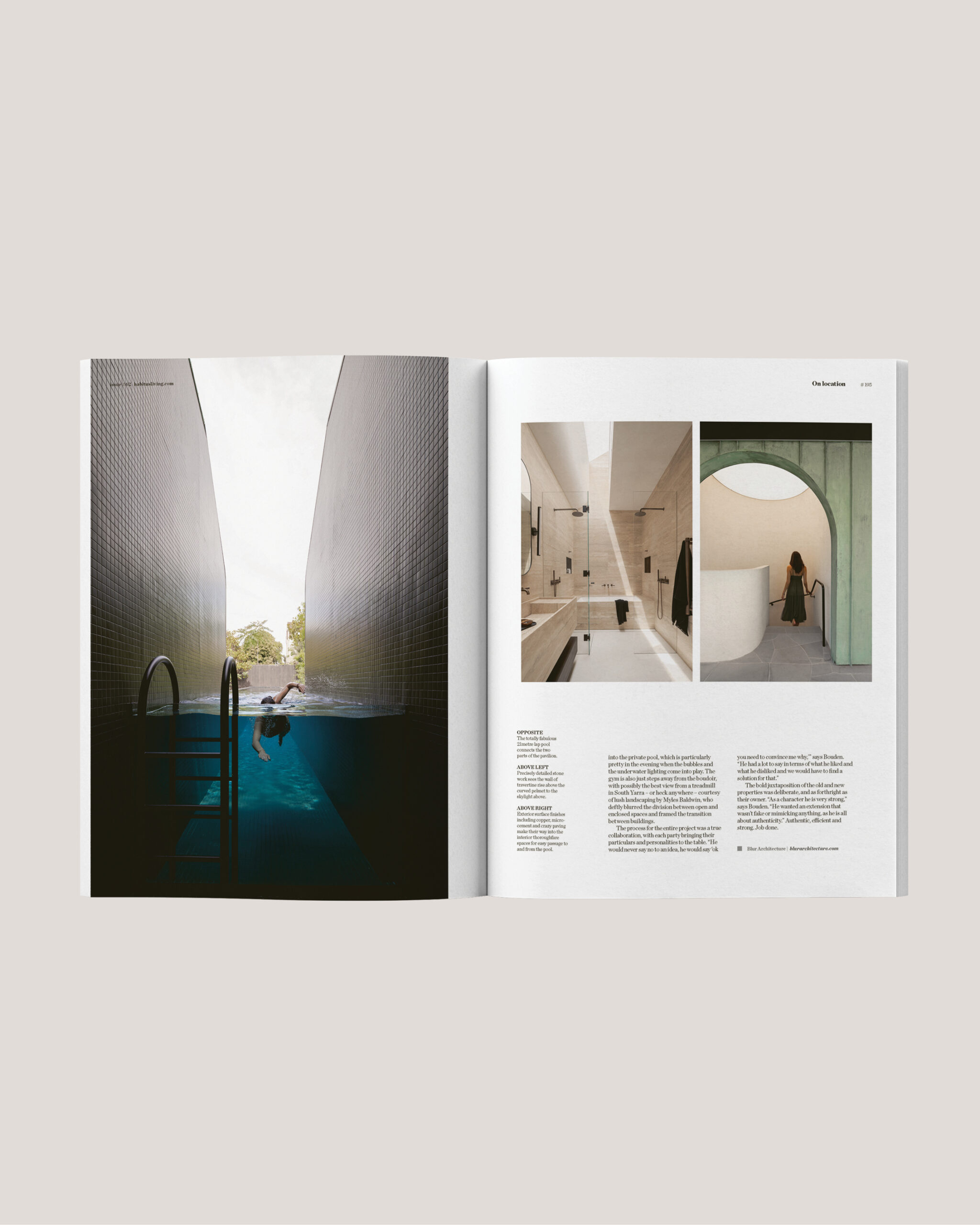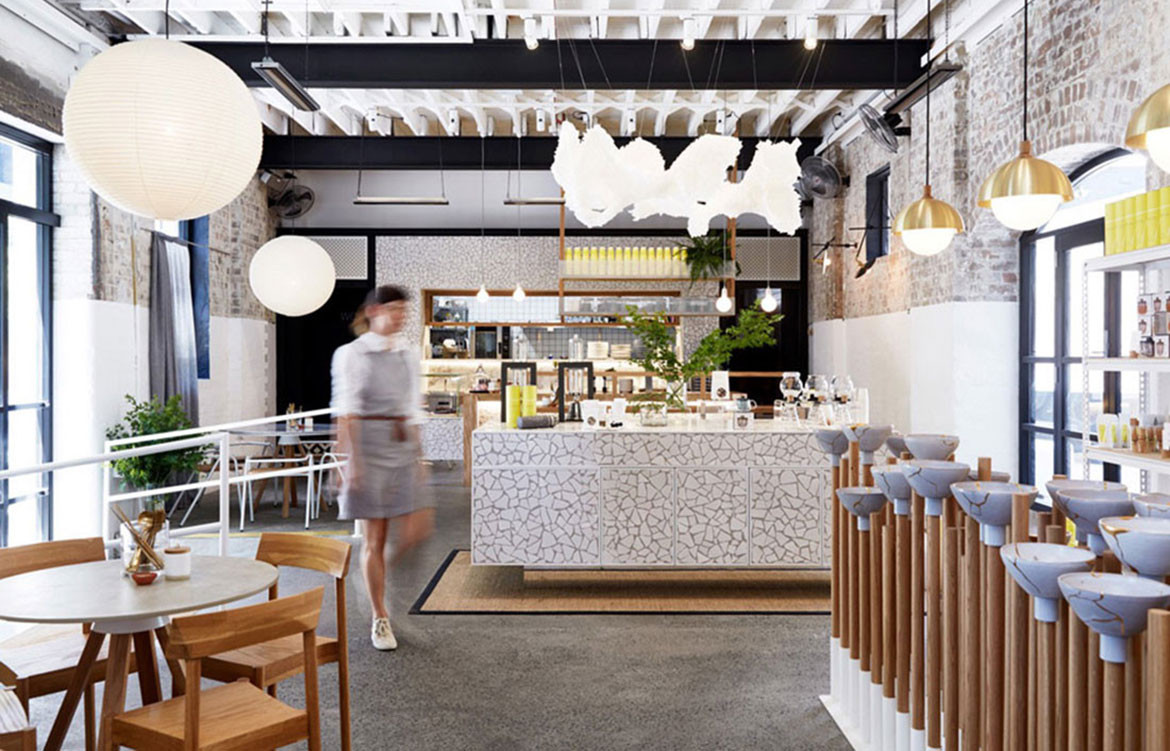The world of Japanese design is a fascinating school. Whether you’re drawn to the traditional and restrained beauty of old world Nippon or the hyperactive kawaii of modern Tokyo, there’s a world of design charm from the Islands of Japan. Unfortunately, a trip to scratch that design itch might be out of the question – lucky for us in Australia though, there is a world of great Japanese design at our fingertips.
Whether you’re after an afternoon in serene relaxation, a late night of neon excitement or seeking something to take home, the options are thankfully plentiful. With this in mind – here are our top six for your fix on Japanese design…
Apato
Richmond’s Apato brings some of Japan’s finest brands and furniture from across the sea to Australian design lovers. A range of Japanese design from artisans and designers is available exclusively in Australia thanks to its carefully curatorial eye. The Apato furniture collection features products by a range of designers, from the heavyweights of the contemporary Japanese design scene – Naoto Fukasawa, Motomi Kawakami, Kiyoshi Sadogawa, Riki Watanabe – to emerging and innovative young designers including nendo, Inoda+Sveje, Torafu Architects, Keiji Ashizawa, Mikiya Kobayashi and more.
HWKR
Hungry for something more than food? Since Melbourne’s Eq. Tower opened it’s been an eye-catching highlight of the city’s skyline – but it’s what’s inside that counts. HWKR is a Japanese market-style restaurant and in its short life has already won the hearts (and stomachs) of locals. The food-driven offering is unique for its rotating tenancies – with different vendors taking up temporary, pop-up space to offer their own food to customers dining in the fusion Japanese design inspired space.
Muji
Tokyo headquartered retailer Muji has been a favourite in the Japanese design scene for years now. Originally founded in 1979 and specialising in paired back minimalist aesthetics in stationary and clothing, the brand now has hundreds of stores around the globe and offers everything from pens and notepads to furniture, whitegoods and even automobiles. What separates Muji from the pack, is the design cohesion – a Bauhaus-reminiscent, functional minimalism that encompasses all products, store design and branding. Lucky for us, there are already four Muji stores in Australia, with more to come.
The Rabbit Hole
The Rabbit Hole is a Sydney tea café designed by Matt Woods Design that pairs an original building’s industrial features with a Japanese design aesthetic and numerous whimsical elements.
The Rabbit Hole is influenced by the Japanese art of Kintsugi, which is based on the celebration of the imperfections in ceramic objects. Matt Woods has created a counter from shards of crushed tiles and a display made of balancing bowls to channel this feeling.
“The Japanese art of Kintsugi forms the foundation of the new design elements,” Matt says. “This is most apparent in the speciality tea display where, like spinning plates on top of a circus performers pole, custom designed Kintsugi bowls sit delicately above turned oak timbers.”
Mimoto
Mimoto is an independent online business based in Melbourne, specialising in simple, modern and traditional goods and accessories of Japanese design and origin. Mimoto is drawn to the raw and simple beauty of Japanese design, arts and crafts, and its products celebrate both the traditional and the modern.
Mimoto’s product range has been carefully curated to showcase the best of contemporary Japanese craftsmanship and aesthetics. Mimoto has created a range of products available online and in-store to showcase Japan’s extraordinarily developed design intelligence and integrity, but also the quirky sense of design humour.
Moga
Moga is a restaurant located in the iconic restaurant hub of Rosalie Village, in Brisbane’s Paddington. Moga is informal Japanese dining with a robata grill, market fresh sashimi and Japanese tapas style dining. Moga translates as Modern Girl and comes from the 1920s phenomenon in Tokyo. The Modern Girls appeared on the city streets of Tokyo with short bob hairstyles and Western-inspired dress. This fusion of east meets west Japanese design culture is present in the design of Moga.
The interior design of the space has taken inspiration from historic eateries seen in Kyoto with wood panelled walls, timber furniture and the warm glow of dimly lit lighting. This, combined with world-class sushi and sashimi, makes Moga an easy way to scratch that Japanese design itch.

